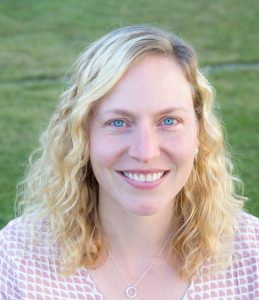I suspect that each of us have thought about how we can make our lives more meaningful. Do we find a greater purpose in serving others? Helping abused children? Getting involved in politics? Inspiring youth to play sports or get involved in art or theater? Saving salmon habitat? Building community? Often, the value we hope to impart on the world from our lives is focused on only our lifetime. But human lifetimes are but a blip on the radar. If you can effect change while you’re alive, imagine what you could do if you had more time.
I do a lot of estate planning. Often times, when people think about estate planning they consider leaving everything they’ve accumulated to their children, or if there are no children, to nieces, nephews, and other more distant relatives. But what about thinking a little bigger? A legacy isn’t only what you leave to the world during your time on it; it is also what you give to the world after you’re gone. A charitable bequest could be the most important gift you ever make — and one of the easiest.
There are a variety of ways to make a bequest. The most common I see (given my line of work) is through estate planning documents – think trusts or wills – wherein you leave a dollar figure, a percentage of your estate, or even include a charity or foundation as a primary or contingent beneficiary. An even simpler way is to name a charity or foundation as the beneficiary on a financial account (i.e., retirement, investment, personal checking or savings). Or you could get more sophisticated and set up a charitable remainder trust, which allows a donor to make a tax deductible contribution while still living, but the donor retains the income stream from that contribution during his/her lifetime. In my experience, though, people in Homer do not need to use the more sophisticated, tax-based planning tools simply because Alaska has no estate tax, and the federal estate tax will not affect you unless you plan to leave your heirs over $11.2 million (double that if you’re married).
Consider this. In addition to being easy, planned giving allows you to support your community without affecting your current lifestyle. While you may not be comfortable with the idea of giving a chunk of your wealth to charity now, with a little planning, you can put those assets to good use even when you no longer have any need for them. And in the meantime, your assets are available to you if you do need them.
The amount you give is of course entirely up to you, and you can specify how you would like your bequest to be handled. For example, you could leave $500 to the animal shelter for the care of dogs (or cats), $1,000 to Haven House for its operating costs, or 5% of your estate to Hospice of Homer for the purchase of new equipment. If you have the ability to bequest $10,000 or more of your estate to charity, you could create a scholarship or special interest fund through the Homer Foundation – the benefit of which would be to create a fund that would benefit your specified area of interest in perpetuity.
We are blessed with a thriving non-profit community in our area. While you consider making Pick.Click.Give. and other donations to those organizations while you’re alive, I hope you will also consider leaving a legacy. There are countless ways to do so, and any amount is always appreciated. If you can’t take it with you, why not put it to good use after you’re gone?
Lindsay Wolter is on the Homer Foundation Board of Trustees. She is an attorney in Homer, and soon-to-be mother of two.
As incentive for folks to more seriously consider planned giving, until she goes on maternity leave in March, Wolter offers a 10 percent discount on estate planning for anyone who gifts a charity at least $1,000.
The Homer Foundation is sponsoring a series of “Where There’s a Will There’s a Way” events. If you would like an opportunity to learn more about planned giving and have the opportunity to ask Lindsay questions, please call Joy Steward at the Homer Foundation to get on the list for the next event, 235-0541.

